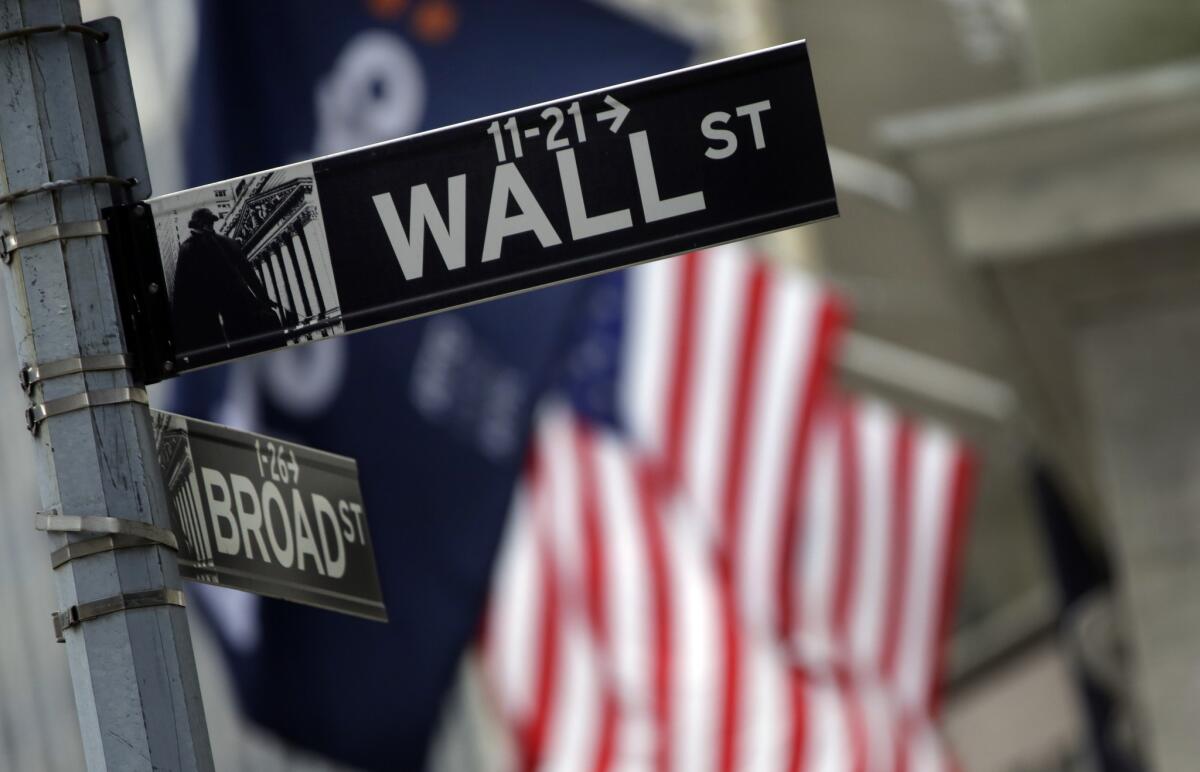Stocks hit records after Trump signs $900-billion aid package

- Share via
Stocks began the final week of 2020 with more gains Monday, nudging the major U.S. indexes to record highs.
The Standard & Poor’s 500 climbed 0.9%, powered by gains in technology, communication services and consumer discretionary stocks. Companies that were hit the hardest by the pandemic, including restaurants, airlines and cruise operators, were among the biggest gainers. Treasury yields were mixed.
The broad rally came as investors welcomed the decision by President Trump to sign a $900-billion coronavirus economic aid package. The package also includes $1.4 trillion to fund government agencies, averting a federal government shutdown that otherwise would have started Tuesday.
The latest gains add to what has been a strong, record-shattering run for the stock market in recent weeks, amid cautious optimism that COVID-19 vaccines will pave the way for the economy to escape the grip of the pandemic in the coming months.
The S&P 500 index rose 32.30 points to 3,735.36. The Dow Jones industrial average gained 204.10 points, or 0.7%, to 30,403.97, a record high. The Nasdaq composite climbed 94.69 points, or 0.7%, to 12,899.42, also a record high. The Russell 2000 index of smaller companies fell 7.70 points, or 0.4%, to 1,996.25.
Wall Street had been hoping since last week that Trump would back down from his veto threat and clear the way for more financial support for hurting individuals and businesses. Trump signed the measure into law late Sunday, despite expressing frustration that coronavirus relief payments weren’t more than $600. The president had asked for higher individual payments to Americans, a move Democrats support but one that is unlikely to get a vote in the Republican-held Senate.
The U.S. economy continues to deteriorate under widespread coronavirus outbreaks, infections and hospitalizations, so the promise of more relief for millions of Americans helps reduce uncertainty amid reimposed curbs on travel and business in response to a new coronavirus variant.
Stocks got a seasonal boost. The market tends to climb in the final five days of trading in December and the first two trading days in January, a phenomenon known as the “Santa Claus rally.” Since 1950, the S&P 500 index has risen an average of 1.3% during those seven days.
Companies that were hit hardest by the pandemic were among the biggest gainers Monday. American Airlines rose 2.6%, Norwegian Cruise Line gained 2.9%, and Carnival added 4.2%.
Technology and communication services stocks accounted for a big slice of the broad market rally. Apple and Facebook each climbed 3.6%.
Shares in Chinese ecommerce giant Alibaba Group rose 0.2%, recovering some of their losses after plunging last week, when government regulators launched an anti-monopoly investigation, and the stock market debut of Ant Group, an online finance platform in which Alibaba owns a 33% stake, was suspended.
Treasury yields were mixed. The 10-year Treasury yield, which can affect interest rates on mortgages and other consumer loans, was at 0.92%.
Trading is expected to be light this week, as most fund managers and investors have closed their books for the year. It will be another short week, with New Year’s Day on Friday.
European indexes closed broadly higher, helped by more details about the Brexit trade deal as part of the United Kingdom’s exit from the European Union. Germany’s DAX rose 1.5%, while the CAC-40 in France gained 1.2%.
In Asia, the Shanghai Composite Index rose less than 0.1% to 3,397.29, while the Nikkei 225 in Tokyo added 0.7% to 26,854.03.
The Hang Seng in Hong Kong declined 0.3% to 26,314.63 after Alibaba Group announced it was expanding a share buyback from $6 billion to $10 billion.
More to Read
Inside the business of entertainment
The Wide Shot brings you news, analysis and insights on everything from streaming wars to production — and what it all means for the future.
You may occasionally receive promotional content from the Los Angeles Times.










